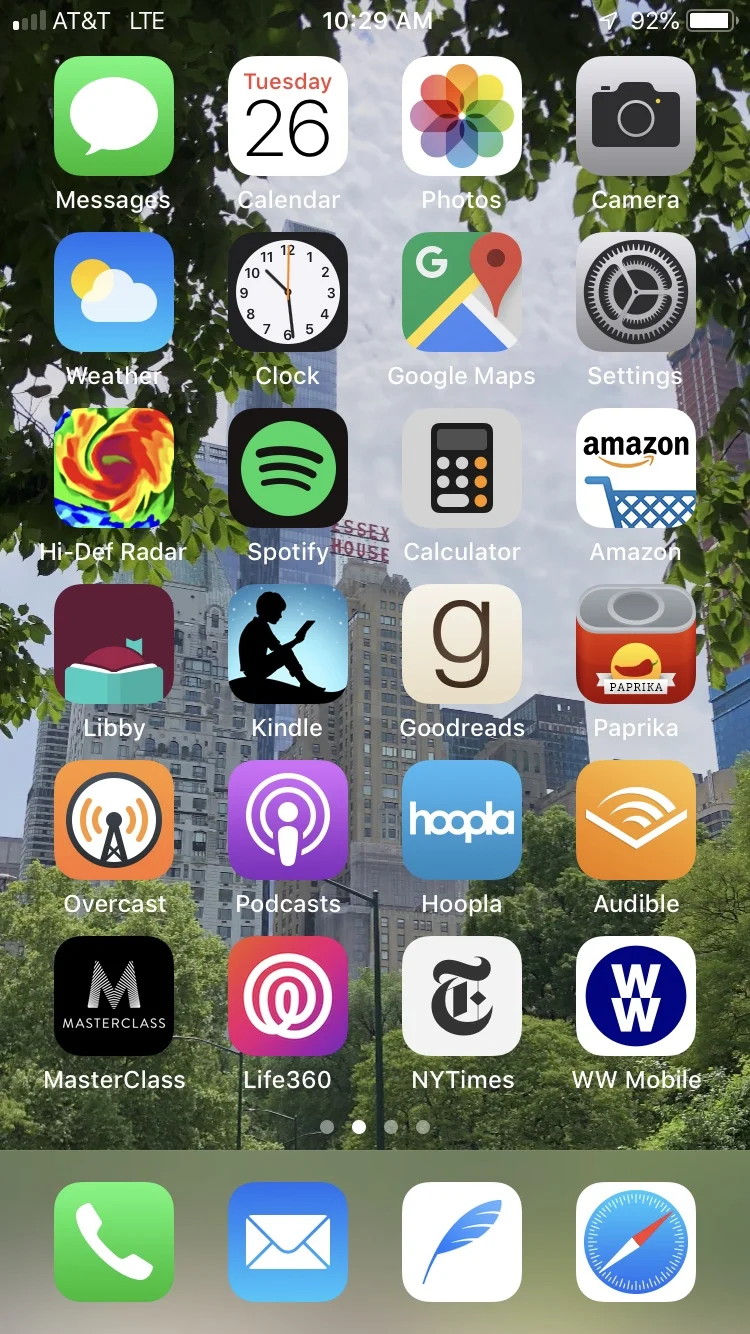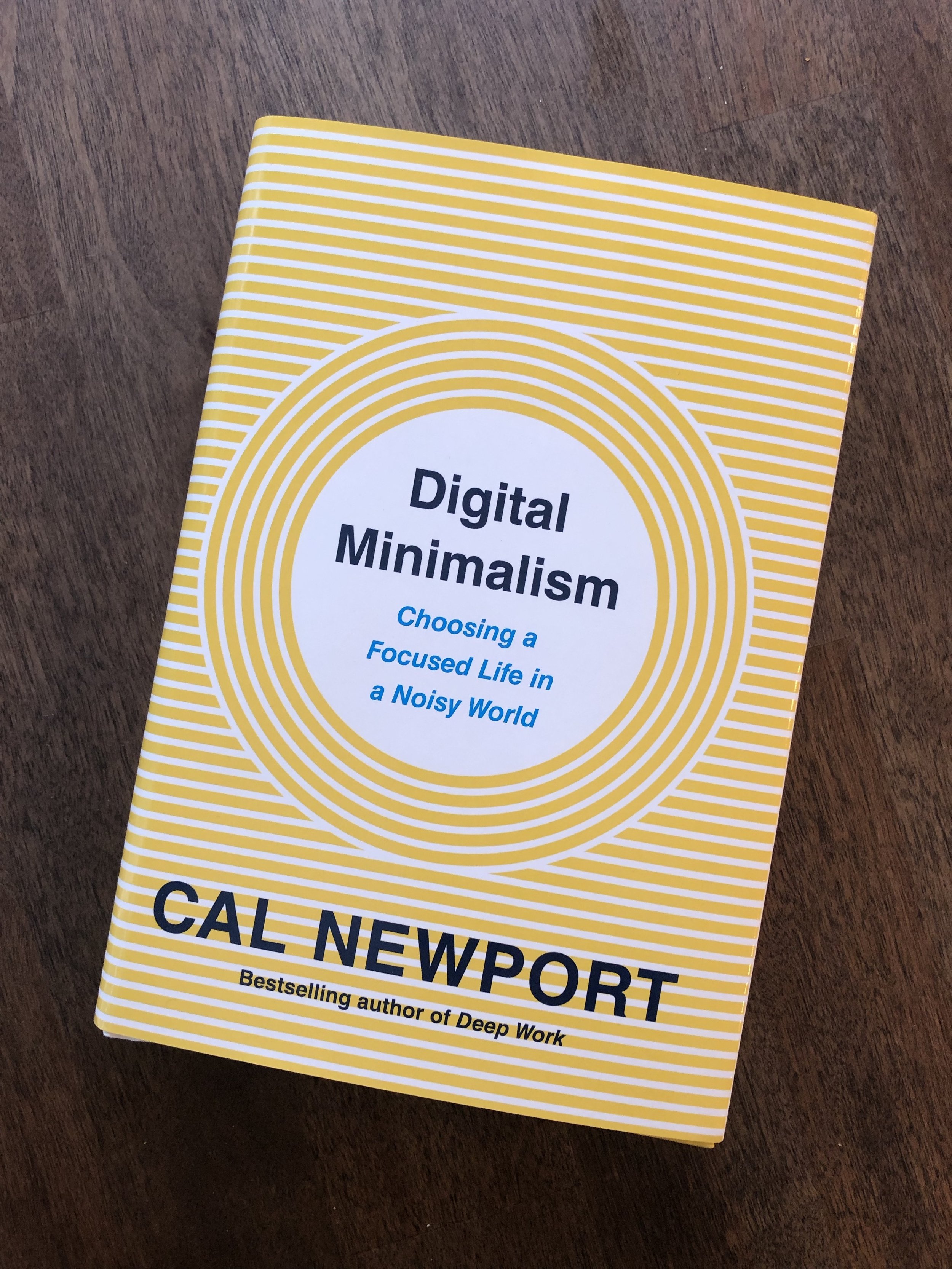If you’ve been following my blog for any amount of time, you know that I have a few close-to-my-heart topics that that I keep coming back to. One of those is the role of screens and social media in our lives (and our children’s lives.) Even though I’ve read a towering stack of books on the topic, I can’t resist a new book in that area. I like digging deeper and understanding different angles and perspectives—along with different solutions people have tried. So when I saw Tiffany Shlain’s book 24/6 The Power of Unplugging One Day a Week, I knew I had to read it.
The premise of this book is pretty obvious with the title, but basically, Shlain has, for the last ten years, taken a Tech Shabbat with her family every week. This means that they turn off their phones and all screens on Friday night and don’t turn them back on until Saturday night. Even though she’s using the term Shabbat and is Jewish, she states that she identifies as a cultural Jew and not a religious one, so she doesn’t follow all the other traditional rules of Shabbat like not driving on that day. She also says the day you choose is arbitrary. It’s what works for you and your family. So if Saturday night to Sunday night works better for you, no problem. The point is spending one full 24 hour period a week without screens/devices.
I was a little afraid that this was going to be one of those books that had a high concept idea that could’ve just been conveyed in a blog post and didn’t need to be stretched into a full book, but I’m happy to report that I really enjoyed the read. She lays out the benefits she’s seen from living 24/6, how her children have responded and thrived, how our brains react to tech, the science behind unplugging, and then a step-by-step guide to set you up for success if you decide to try your own Tech Shabbat. I also enjoyed the personal stories sprinkled in. It ended up being a very quick read that I gobbled up in a day.
And man, it left me really wanting to try this whole 24/6 idea. I haven’t done it yet because this will take some preparation. I also may have a hurdle getting my family on board, lol. But I think I can tweak and modify her system to fit us. For instance, Saturday night to Sunday night would be a better fit for my family. And I have mixed feelings about no TV at all because the only time we get to watch a movie or sporting event as a family is the weekend. So I may make the caveat of—no TV unless we’re all watching something together as a family. Also, my husband’s job won’t let him not be available by phone, so he’ll have to be able to take calls. BUT we don’t need to do anything else on our phone besides taking phone calls. So it wouldn’t be 100%, but even if we got to 90% on that one day a week, I think that’d be a big improvement.
As some of you know, we did device-free summer for kidlet two summers in a row, and it was LIFE CHANGING. Like, seriously. My son is now an accomplished guitarist and drummer because of that first device-free summer. And that iPad he used to be so attached to? I don’t even know where it is anymore. Packed in a box somewhere I think. (He does have a phone, though.) We don’t always get to claim a lot of parenting wins, but I’ll take credit for that one lol.
I’ve also personally done 30-Day social media bans and have gotten a lot out of that kind of reboot, too. So I think this Tech Shabbat idea is right up my alley. If we give it a try, I’ll be sure to report back!
As an additional recommendation, I also read Jaron Lanier’s Ten Arguments for Deleting Your Social Media Accounts Right Now. This is a small book with ten arguments about social media, including ones like “Social media is making you an a**hole.” I really got a lot out of this one, but I’m not giving it an across-the-board recommendation because it’s written in a very academic/cerebral tone, which won’t be for everybody, and also it’s more of an extreme take. So, your mileage may vary. If you’re nerdy and into this topic like I am, then take a look. :)
Interested in this topic?
Here’s a list of other posts I’ve done about devices and digital distractions:
A Screen-Free Summer for Kidlet: How, Why, & If I'll Lose My Mind
The End of Our Screen-Free Summer: Results and Moving Forward
Stop Letting Your Inbox Distract You: Making Rules Work For You
Roni Recommends - Rest: Why You Get More Done When You Work Less
The Digital Declutter and Why I’m Taking a 30-Day Social Media Break
After the 30-Day Social Media Ban: What Surprised Me and What I’m Changing
What are your thoughts? Do you think you could give up tech for one day a week?








